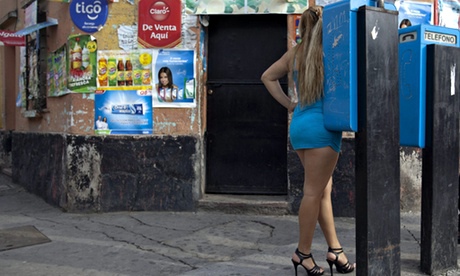
'No matter how horny humanitarians get, it is never okay to pay for sex'
I have to say that I was quite disturbed by the recent article on humanitarian workers' sex lives. Not because humanitarians shouldn't have sex but because you failed to consider ethical obligations that humanitarian organisations have been working towards for the past 20 plus years.
No matter how horny humanitarians get, it is never okay to pay for sex as you suggest in a humanitarian context. Nor is it ever okay to have sexual relations with the people you have come to support on their way to recovery. To pretend that it is permissible is to deny the power dynamics that exist in a humanitarian context and to perpetuate cycles of a use and inequity. It has little to do with the reputation of the organisation [but] everything to do with the protection of vulnerable human beings. Any conversation about humanitarian sex must include this point. And if people can't keep their pants on until R&R [rest and relaxation], they should find a new career.
Stephen Allen
Hoima, Uganda
'It is assumed men have greater sexual needs than women'
I think your article is quite close to reality given my experience in the field as a humanitarian aid worker for one of the biggest NGOs. The lack of privacy is huge but as a woman I have noticed that boys are prioritised for single rooms as if men had greater sexual needs than women.
Something that you haven't mentioned is fidelity. I find that everybody applies the French saying 'celibatair geographic' – a licence to cheat on a partner back home for the mere fact that we are on another continent. All of us have cheated, no matter if we are married or living together and with children. In the field, the bond that appears between expats due to the stress of the mission and being together 24/7 makes it easy to be carried away by your emotions.
Another issue is the number of unwanted pregnancies during missions and the high number of people who get HIV due to unprotected sex – hard to believe considering we are a medical organisation with HIV programmes and reproductive health and family-planning programmes.
Anonymous nurse
Spain
'Young, foreign females are particularly vulnerable to sexual harassment and assault'
I read the piece and agree: if we are serious about safety and wellbeing, more open discussions are needed. I used to work in Central Asia and believe the risk of sexual harrassment and sexual assualt are heightened in organisations and contexts, where cultures and (sexual) customs clash. Situations and relations can be interpreted very differently by those involved and things can escalate easily. Many international organisations do not adequately address these risks, lacking the designated structures and strategies to address issues of sexual harassment and assault in the workplace.
Young, 'foreign' females are particularly vulnerable to sexual harassment and assault. And it is typically young women in the early stages of their careers that are likely to work in the field: on short-term contracts, struggling to position themselves within their organisations and teams, challenged to establish their social network in a foreign country and culture.
So where can they best seek help if a situation escalates, particularly when it involves relations with local senior (male) colleagues, who are much more professionally and socially established? If there is no formal and professional internal concept to address such issues, victims face additional risks of getting stigmatised and losing their professional reputation by involving others. This creates environments in which harassment and assault remains unreported and tabooed and victims are left alone to cope with their experiences. International organisations need to take a stronger stance on sexual harassment and assault in the workplace.
Esther Werling
Bishkek, Kyrgyzstan
'This is a missed opportunity to inform about policies designed to protect'
We work on preventing and responding to sexual violence in humanitarian emergencies and have for decades. Your recent article caught our attention because it raised a very dangerous 'solution' to the 'problem' of humanitarian workers having a sex life while in the field.
The 2003 United Nations bulletin on Protection from Sexual Exploitation and Sexual Abuse explicitly prohibits humanitarians from exchanging money, goods or services for sex. Every international organisation that receives funding from the UN, United States or European donors must abide by these requirements, including mandatory reporting against any suspected violation. While there may be logistics officers and drivers who take coworkers to brothels, they should be reported for doing so and they and their brothel-visiting coworkers should be investigated and fired.
Humanitarians are human beings who have sexual relations while deployed – this is true. We all know couples that have developed relationships with other humanitarians but this is not a given. Sexual relationships with local staff and people affected by the crisis involve significant power dynamics and call into question the idea of 'consent'.
The heart of these policies is to ensure protection of vulnerable populations and organisations still struggle to implement them. Articles like this may strive to start a conversation but have missed an opportunity to inform about the existence of policies designed to protect affected populations from those who can't control their sex drives.
Sarah Martin, Chen Reis, Micah Williams, and Beth Vann
All over the United States
Join the community of global development professionals and experts. Become a GDPN member to get more stories like this direct to your inbox

